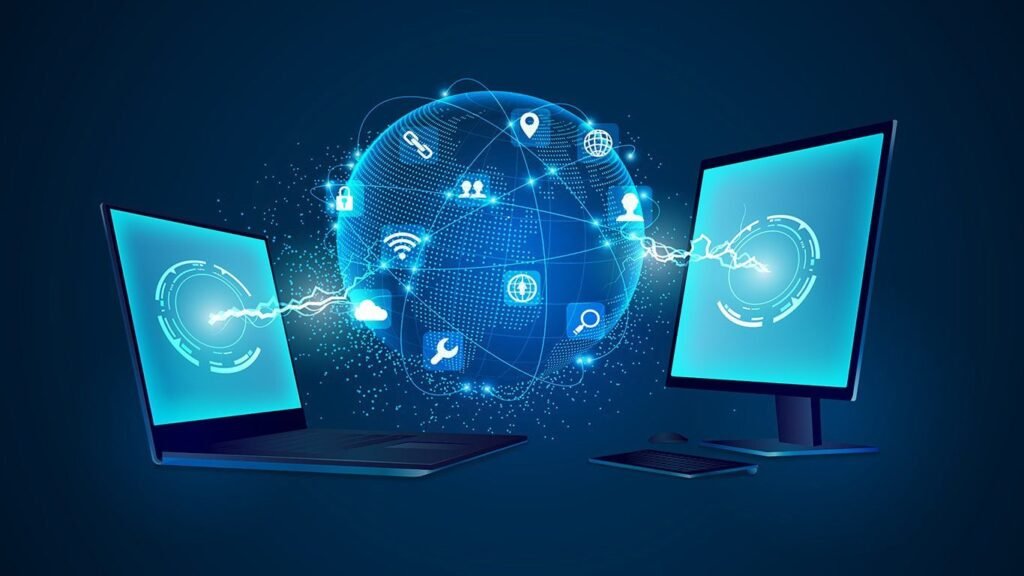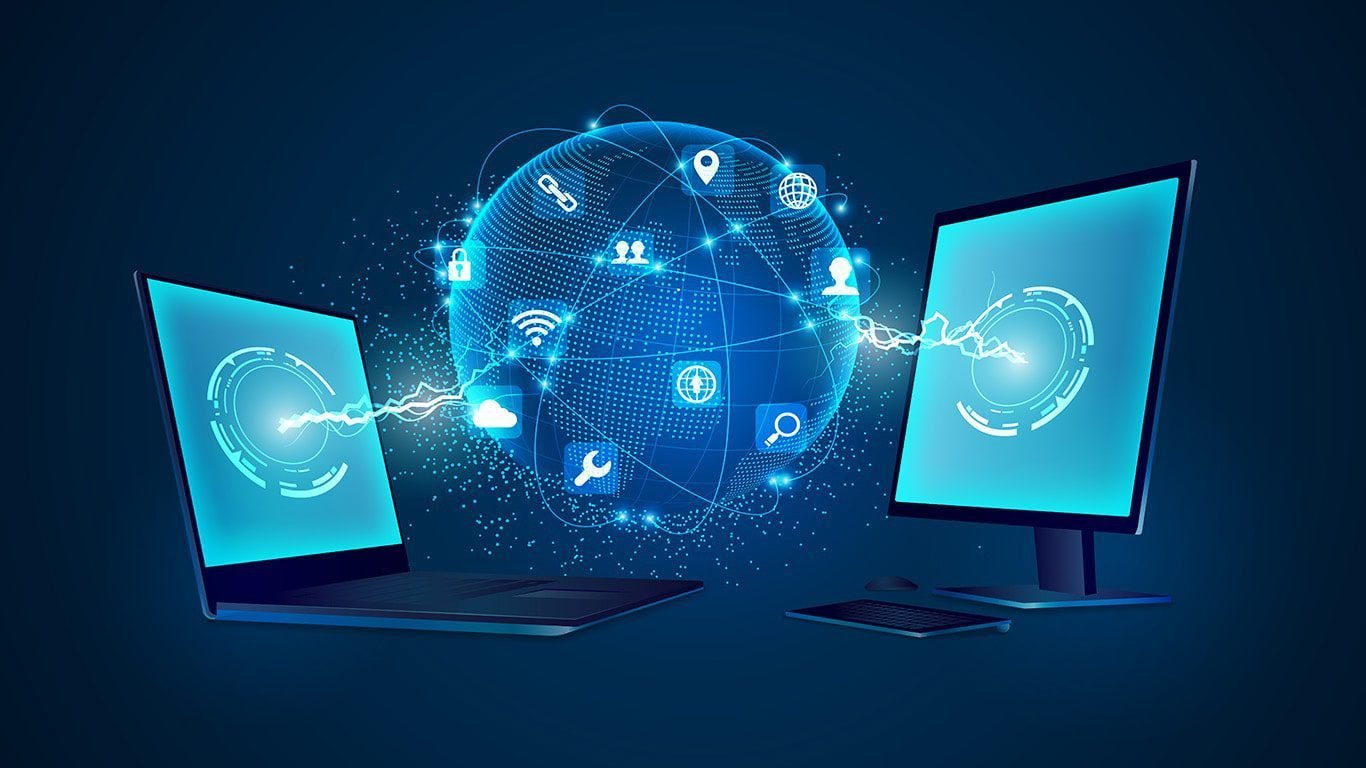
Information technology (IT) has become an integral part of modern life, transforming the way we live, work, and interact with one another. From streamlining business operations to improving access to information, IT has a profound impact on nearly every aspect of society. The rapid advancement of digital technologies has fueled innovation and efficiency across various sectors, including healthcare, education, finance, and manufacturing. As the world continues to embrace digital transformation, the role of IT in driving economic growth and improving quality of life becomes increasingly apparent.
What is Information Technology?
Information technology refers to the use of computers, software, and networks to process, store, retrieve, and exchange data. It encompasses everything from the physical devices and infrastructure that enable communication, to the systems and applications that manage information. In today’s interconnected world, IT systems play a crucial role in facilitating communication, supporting business processes, and enabling innovation.
Some of the core components of IT infrastructure include:
- Hardware: Physical components like servers, computers, storage devices, and networking equipment.
- Software: Applications and programs that process and manage data.
- Networks: Communication systems that allow data exchange between different systems, such as the Internet and internal company networks.
- Data Management: Processes and tools for storing, organizing, and accessing large amounts of information.
The Impact of Information Technology on Business
One of the most significant contributions of information technology is its ability to revolutionize the way businesses operate. The adoption of IT solutions has allowed companies to streamline operations, improve efficiency, and enhance communication, all while reducing costs.
1. Automation and Efficiency
The integration of IT into business processes has led to increased automation, enabling companies to handle complex tasks more efficiently. Tasks that once required significant manual input can now be completed in a fraction of the time using IT systems. For example, manufacturing firms use automation technologies to optimize production lines, while service-based industries rely on IT to automate customer interactions through customer relationship management (CRM) systems.
Additionally, businesses can now manage large datasets more effectively thanks to data analytics tools, allowing them to make informed decisions based on real-time insights. The ability to process and analyze data quickly has become essential for businesses seeking to remain competitive in a rapidly evolving market.
2. Improved Communication and Collaboration
Information technology has transformed the way people communicate, making it easier for teams to collaborate across time zones and locations. Technologies like cloud computing, video conferencing, and instant messaging tools enable employees to work together regardless of geographical distance. Cloud-based collaboration platforms such as Microsoft Teams and Slack allow for real-time sharing of files, documents, and ideas, fostering a culture of collaboration and innovation within organizations.
Furthermore, advancements in IT have enabled businesses to establish global supply chains and expand their reach beyond borders. Through e-commerce platforms, companies can now sell products and services to customers worldwide, providing unprecedented opportunities for growth.
3. Cybersecurity
As businesses rely more heavily on IT systems, they face increasing threats from cyberattacks and data breaches. The importance of cybersecurity cannot be overstated in today’s digital age. Companies must invest in robust security technologies to protect sensitive information, safeguard customer data, and maintain trust. This includes using firewalls, encryption, and other security protocols to prevent unauthorized access to systems.
Additionally, information technology professionals play a critical role in developing and implementing cybersecurity strategies to mitigate risks and ensure the integrity of a company’s IT infrastructure.
The Role of IT in Society
Beyond business, information technology has transformed society in countless ways, particularly in areas like healthcare, education, and communication.
1. Healthcare
The healthcare sector has benefited immensely from advancements in information technology. From electronic health records (EHRs) to telemedicine, IT has improved patient care by making healthcare services more accessible and efficient. EHR systems enable healthcare providers to store and access patient information securely, improving the accuracy of diagnoses and treatments. Additionally, telemedicine platforms allow patients to consult with doctors remotely, reducing the need for in-person visits and improving access to care for those in remote areas.
2. Education
Information technology has revolutionized education, making learning more accessible to people around the world. With the rise of e-learning platforms, students can now access educational content from anywhere, at any time. This has opened up opportunities for individuals who may not have had access to traditional educational institutions. Additionally, IT tools such as virtual classrooms, interactive whiteboards, and online assessments have transformed how teachers deliver lessons and engage with students.
3. Social Connectivity
The widespread use of social media and instant messaging applications has transformed how people communicate and stay connected. Platforms like Facebook, Twitter, and WhatsApp allow users to share information, interact with others, and participate in global conversations. Information technology has made it easier for individuals to connect with others, regardless of their location, fostering a sense of global community.
Future Trends in Information Technology
The future of information technology is filled with exciting possibilities, driven by emerging technologies such as artificial intelligence (AI), blockchain, and 5G networks.
- Artificial Intelligence: AI is already transforming industries by enabling businesses to automate complex tasks, predict trends, and improve decision-making processes. AI-powered chatbots and virtual assistants are becoming more common, offering businesses new ways to engage with customers.
- Blockchain: This decentralized technology has the potential to revolutionize data management by providing secure, transparent, and tamper-proof records. It could reshape industries like finance, healthcare, and supply chain management.
- 5G Networks: The rollout of 5G technology promises faster internet speeds, lower latency, and greater connectivity, enabling the development of innovative applications such as autonomous vehicles, smart cities, and the Internet of Things (IoT).
In conclusion, information technology continues to be a driving force behind innovation, shaping the way businesses operate and how individuals interact with the world around them. As IT systems evolve, they will continue to play a pivotal role in enhancing business processes, improving communication, and advancing society as a whole. With the rapid pace of technological advancement, staying informed about the latest trends in information technology is essential for individuals and organizations alike, ensuring they remain competitive and well-prepared for the future.




